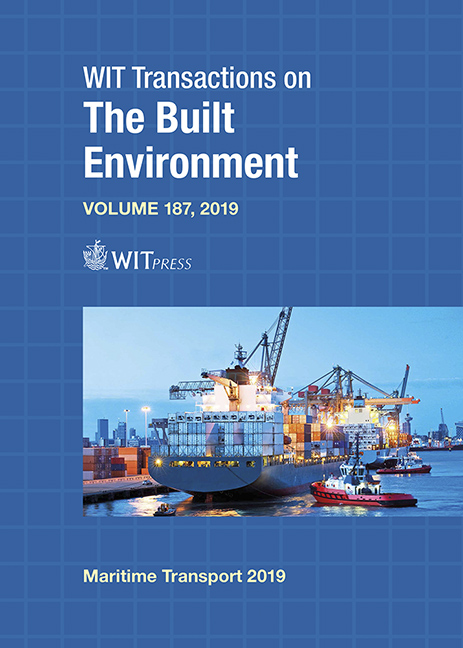PRELIMINARY COST-EFFECTIVENESS ANALYSIS OF THE MEASURES PUT IN PLACE BY EU MEMBER STATES TO IMPLEMENT THE DIRECTIVE ON REDUCTION OF SULPHUR CONTENT IN FUELS USED BY SHIPS
Price
Free (open access)
Transaction
Volume
187
Pages
12
Page Range
175 - 186
Published
2019
Size
282 kb
Paper DOI
10.2495/MT190161
Copyright
WIT Press
Author(s)
FRANCESCO ROTOLI, GUIDO CALCAGNO, SERGIO ALDA, MERCEDES GARCIA HORRILLO, STEFANO RICCI, LUCA RIZZETTO
Abstract
For Europe, maritime transport has always been a catalyst for economic development and prosperity throughout its history. The European Union (EU) has adopted one of the most stringent maritime safety and marine environment legislation in the world. Its aim is to ensure a high level of safety, prevention of pollution and a level playing field, where all shipping operators, who follow good practices, are not put at a commercial disadvantage compared to those taking shortcuts in ship safety or pollution prevention. As part of this effort, the European Commission ensures that EU Member States correctly implement the EU maritime acquis, to lower the risk of serious maritime accidents and to minimise the impact of maritime transport on human health and the environment. In this context, the EU’s European Maritime Safety Agency (EMSA) provides technical support to the European Commission and EU Member States in developing a uniform and consistent implementation of EU legislation on maritime safety, prevention of pollution from ships and security. A useful technique to assess and improve the implementation and enforcement of the EU maritime acquis is a cost-effectiveness analysis of all the related implementation measures put in place by Member States. This paper describes the background, the framework and preliminary results of a cost-effectiveness analysis (CEA) of Member States’ measures to implement Directive (EU) 2016/802, also referred to as the Sulphur Directive. The Sulphur Directive aims to reduce harmful health effects and environmental damage caused by sulphur dioxide (SO2) emissions resulting from the combustion of some liquid fuels, including marine fuels. The outcome of this CEA may be used by the EU institutions and Member States to share relevant best practice and trigger discussion on common issues, possible ways forward and dissemination of good working practices for a more effective and efficient implementation of the Sulphur Directive at the European and national levels.
Keywords
cost-effectiveness analysis, sulphur pollution, European Union legislation, pollution from ships, air quality





